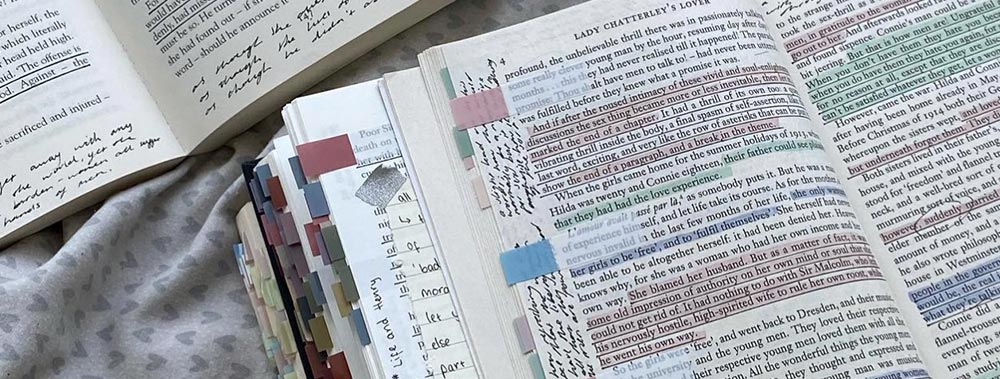Doctor Faustus: Summary, Plot, Characters, Literary Analysis & More
“Doctor Faustus,” a play penned by Christopher Marlowe and originally published between 1604 and 1616, remains a pinnacle of literary achievement.
This tragic drama follows Faustus, a gifted German scholar, who initiates a pact with Mephistopheles after summoning him through black magic.
Faustus sells his soul to the devil in exchange for knowledge and power, triggering a profound exploration of themes such as ambition, morality, and the eternal struggle between good and evil.
Marlowe’s vivid portrayal of Faustus’s inner conflict, interactions with angels and devils, and his ultimate descent pose thought-provoking inquiries about human desires and their consequences.
Doctor Faustus Summary
“Doctor Faustus” commences as Faustus begins his journey as a brilliant but dissatisfied German scholar. In an attempt to transcend human limitations, he summons Mephistopheles through black magic.
This iconic play, known as “Doctor Faustus,” explores Faustus’s escalating thirst for knowledge and power, leading him to make a pact with the devil.
As he trades his soul for supernatural abilities, Marlowe’s work delves into profound themes inherent in the play
Doctor Faustus, encompassing the price of ambition, the dichotomy of good and evil, and the tragic consequences of pursuing forbidden wisdom.

This iconic play explores Faustus's escalating thirst for knowledge and power, leading him to make a pact with the devil.
Table of Contents
Summary The Plot Characters Key Themes Genres Language used Literary devices Summing upThe Plot
In the play, Faustus summons the demon Mephistopheles in his quest for limitless knowledge and power.
Despite moments of doubt, Faustus begs God for mercy, but he ultimately seals a pact with the devil.
Gifted with supernatural abilities, he embarks on a journey of indulgence, performing feats of magic and summoning spirits.
However, Faustus’s internal struggle intensifies as he faces the consequences of his choices, leading to a tragic and inevitable confrontation with the demons he once summoned.
Characters
From the ambitious scholar Faustus, who trades his soul for power and knowledge, to the cunning and manipulative Mephistopheles, each character embodies profound themes of ambition, temptation, and the consequences of unchecked desires.
Faustus
The central character, Faustus, is a talented German scholar who initiates his downward spiral by summoning Mephistopheles through black magic.
His relentless pursuit of knowledge and power drives him to make a fateful pact, showcasing his inner conflict between ambition and morality.
Mephistopheles
As the devil’s representative, Mephistopheles responds to Faustus’s summons, tempting him with promises of boundless power.
He serves as a cunning and manipulative figure, driving Faustus toward his tragic destiny and testing his resolve against the forces of good.
Valdes and Cornelius
Valdes and Cornelius, Faustus’s friends and mentors, introduce him to the world of black magic and alchemy.
They play a significant role in pushing Faustus toward his fateful decision to seek forbidden knowledge and make a pact with the devil.
Good and Evil Angel
The Good Angel and Evil Angel personify the conflicting moral forces that influence Faustus throughout his journey.
The Evil Angel encourages his pursuit of power, while the Good Angel advocates for repentance and redemption, illustrating the inner struggle between his desires and his conscience.
Helen of Troy
Helen of Troy, summoned by Faustus through his magical abilities, represents desire and beauty.
Her presence exemplifies Faustus’s insatiable pursuit of pleasure and his ultimate downfall as he succumbs to his own vices.
Wagner (Faustus’s servant)
Wagner is Faustus’s loyal servant who inherits his master’s magical books after Faustus’s deal with the devil.
He continues Faustus’s legacy and adds a touch of irony to the story, as he inherits both Faustus’s knowledge and his tragic fate.
Lucifer
Lucifer, also known as the Devil, is the ultimate antagonist in the play. He orchestrates Faustus’s downfall and represents the embodiment of evil.
His influence over Faustus highlights the allure of power and the consequences of making morally compromising choices.
Robin
Robin is a comical figure who acquires one of Faustus’s magical books and clumsily attempts to use it for his own selfish purposes.
His interactions with the supernatural world provide moments of comic relief amidst the play’s darker themes.
Key Themes
The play delves into complex themes such as the consequences of unchecked ambition, as Faustus’s relentless pursuit of knowledge and power leads to his tragic downfall.
It also explores the struggle between good and evil, exemplified through Faustus’s interactions with angels and devils.
Moreover, Marlowe critiques the dangers of temptation and pride, revealing how Faustus’s initial noble intentions unravel through his actions, as he reveals his inner desires and signs his soul away.
Themes of Good and Evil
The theme of good and evil is central as it explores the consequences of Faustus’ decision to seek forbidden knowledge.
Faustus initially leans toward good, but his overwhelming ambition pushes him toward dark powers. Mephistopheles embodies evil, luring Faustus with promises of power.
The play depicts Faustus’ internal struggle, reflecting the timeless human battle between morality and temptation.
The theme exposes the moral ambiguity of choices and the consequences of succumbing to darker forces.
Themes of Temptation and Pride
Temptation and pride interweave throughout the play, driving Faustus’ downfall.
For example, Faustus’ pride fuels his desire for knowledge and recognition beyond human limits.
Mephistopheles exploits this pride, offering him supernatural abilities. Faustus’ temptation to wield god-like power reveals the seductive nature of forbidden knowledge.
His arrogance blinds him to the grave consequences of his pact.
The theme highlights how unchecked pride and the allure of power can lead individuals astray, emphasizing the fragility of human nature when faced with alluring temptations.
Genres in Doctor Faustus
“Doctor Faustus” is a blend of tragedy and morality play, fusing elements of both genres.
The tragedy unfolds as Faustus’s aspirations spiral into catastrophe, while the morality play aspect highlights the moral lessons and spiritual consequences of his choices.
Additionally, the play incorporates elements of the supernatural, with magic and demonic forces playing pivotal roles, adding layers of intrigue and drama to the narrative.
Language used in Doctor Faustus
Christopher Marlowe’s language in “Doctor Faustus” is rich and evocative, reflecting the characters’ emotional turmoil. The text employs vivid imagery to convey Faustus’s inner conflict.
Faustus tells his desires and continues his journey.
The use of poetic and dramatic language heightens the play’s atmosphere, while the interactions between characters, such as Faustus’s dialogue with Mephistopheles, are charged with tension and emotion, emphasizing the play’s intense themes.
Literary devices in Doctor Faustus
The play employs a variety of literary devices to enhance its storytelling. Marlowe skillfully uses irony to highlight Faustus’s tragic flaw and the consequences of his actions.
The play also features soliloquies, providing insight into Faustus’s internal struggles as he reveals his innermost thoughts.
Marlowe’s use of allegory in Faustus’s interactions with angels and devils adds depth to the exploration of good and evil. Additionally, the play’s symbolism and foreshadowing contribute to its layered narrative.
Similes
Similes are deftly employed to enrich the reader’s experience. When Faustus signs his pact with Mephistopheles, his soul is compared to “a drop of blood,” vividly emphasizing the gravity of his decision.
As Faustus reveals his desires, he likens them to “a wilderness of sweets,” portraying his insatiable cravings.
These similes amplify the emotional impact, aiding readers in grasping Faustus’s inner turmoil. Faustus continues his tragic journey toward damnation.
Metaphors
Metaphors function as potent vehicles for deeper meaning. As Faustus entertains the idea of power, his soul’s yearning is metaphorically compared to “a god in show,” reflecting his aspirations.
The seven deadly sins, represented as characters, serve as metaphorical embodiments of human vices, casting light on moral corruption.
Likewise, the invited Faustus symbolizes the enticement of forbidden knowledge, while his interactions with friends Valdes and Cornelius mirror the allure of worldly desires.
These metaphors contribute to the portrayal of Faustus as a tragic hero, torn between his ambitions and his ultimate downfall.
Analogies
Analogies act as cognitive bridges, aiding in the comprehension of intricate concepts. As Faustus asks Mephistopheles about hell, likening it to the skies, it facilitates understanding of the incomprehensible.
Faustus’s books are paralleled to wealth, offering insights into his desire for knowledge. The analogy of Faustus’s soul as a contract captures the transactional nature of his pact.
Similarly, Charles V is used to parallel Faustus’s yearning for power. Analogies enrich the narrative, fostering reader engagement.
Imagery
The playwright employs vivid imagery to paint sensory landscapes. As Faustus returns to the study, he envisions a chariot drawn by dragons, evoking the grandeur of his ambitions.
The evil angel’s arrival takes on a grotesque, devilish form, adding a visual layer to the supernatural conflict.
The imagery of a medieval world and the pope’s private chambers immerse readers, while Christian conscience takes shape as warring angels. These evocative descriptions enrich the play’s atmosphere and engage the reader.
Symbolism
“Doctor Faustus” utilizes symbolism to underscore profound themes.
When Faustus summons Mephistopheles, it signifies his plunge into forbidden knowledge, while making Faustus a deal with the devil represents Faustus’s Faustian bargain.
The appearance of the homo-fuge motif reflects his quest for escape from his own mortality. The tragic history of Helen of Troy encapsulates Faustus’s pursuit of hedonism, contrasting with his questions about salvation.
These symbols provide deeper layers of meaning, interwoven with the narrative’s complexities.
Personification
Personification in “Doctor Faustus” breathes life into characters and settings. When Mephistopheles gives Faustus books, the books become animate tools of knowledge, enhancing their allure.
As Faustus realizes his fate, his inner conflict manifests through personified angels – the Good Angel and Evil Angel, crystallizing his moral dilemma.
When Wagner asks Faustus for magical knowledge, it infuses the request with urgency, emphasizing the dynamic between master and servant. These instances imbue the story with richness and emotional resonance.
Hyperbole
Hyperbole amplifies the narrative’s intensity.
As Faustus makes his pact with Mephistopheles, the consequences are magnified through hyperbolic language, underlining the gravity of his decision.
When we see the evil angel arrive – the act is depicted with exaggerated darkness, intensifying the clash between good and evil.
Furthermore, when Mephistopheles makes Faustus travel the world in an instant, the hyperbolic description accentuates the supernatural power at play.
Hyperbole heightens drama and emotional impact, fortifying the play’s themes.
Irony
The feast honoring St. Peter’s Day, which Faustus’s conjured illusions disrupt, showcases situational irony as a holy event turns chaotic.
As fellow scholars witness Faustus’s downfall, dramatic irony highlights their blindness to his spiritual decay.
Faustus’s summoning of Helen, using his own blood, serves as an example of verbal irony, as a supposed display of power is revealed as futile. These ironies layer depth and contrast into the story.
Juxtaposition
Juxtaposition accentuates contrasts, prompting reflection. Faustus questions a lot about theology stands in stark contrast to his ability to summon Mephastophilis, highlighting his intellectual curiosity versus his dangerous choices.
The coexistence of Faustus’s yearning for knowledge and his pact with the devil creates thought-provoking tension, making readers ponder the consequences of his actions amid the stark duality of his desires.
Paradox
Faustus’s pursuit of human knowledge leads to petty illusions, illustrating how his quest for wisdom yields trivial results.
His desire to practice magic for the German Emperor highlights a contradiction—Faustus’s willingness to serve a powerful human, despite his pursuit of supernatural abilities.
Likewise, his ambition to bring Helen of Troy back to life underscores the incongruity of desiring historical figures in a world of magic.
Allusion
When Wagner tells the story of Faustus’s return home, it recalls the prodigal son parable, paralleling Faustus’s journey of redemption.
The appearance of Mephistopheles and devils, akin to the biblical fallen angels, embeds a religious undertone.
Faustus’s interaction at the Pope’s court references the power struggle between the church and individuals seeking enlightenment.
These allusions deepen thematic connections and enrich the narrative.
Allegory
The play bears allegorical elements mirroring broader themes. Faustus’s dealings with the Duke, driven by lust, symbolize the corrupting influence of power.
The concept of repentance, emphasized through the characters of two fellow scholars and their contrasting paths, allegorically explores salvation and moral choice.
The pope’s court and references to Shakespeare’s works serve as allegories for societal structures and artistic legacy. Such elements contribute depth to Marlowe’s narrative.
Ekphrasis
While “Doctor Faustus” lacks direct ekphrasis, descriptions evoke vivid images. As Faustus returns home, his contemplation of the natural world reflects external change mirroring his internal turmoil.
The depiction of the knight and duchess embodies the ephemeral nature of human desire.
These scenes, though not explicit ekphrasis, illustrate poignant emotions through their vivid portrayal, adding an artistic layer to the narrative.
Onomatopoeia
The Pope’s presence echoes power, resonating with his influence. The play’s English translation reverberates the accessibility of knowledge.
When Faustus contemplates repentance, the word itself seems to echo his internal conflict. As devils enter, the word immerses readers in the cacophony of their arrival, enhancing the visceral impact of supernatural forces within the narrative.
The Use of Dialogue
The play employs dialogue to unveil character traits and themes. Robin’s colloquial speech contrasts with scholarly dialogue, highlighting social divisions.
Faustus’s conversations with Pope and knight reveal his internal conflict, as they signify his wavering between desires and repentance.
Dialogue between Marlowe and Lucifer delves into Faustus’s soul’s fate, exposing moral dilemmas and supernatural conflicts, contributing to the narrative’s depth.
Word Play
“Doctor Faustus” showcases diverse wordplay techniques. Puns like Faustus’s “When hell’s a proper place to repent,” intertwine themes of damnation and salvation.
The dialogue between the duke and pope exhibits double meanings, adding humor and social commentary.
References to God, Lucifer, and the soul in dialogues navigate themes of morality and the supernatural. These wordplay instances elevate both entertainment and thematic exploration.
Parallelism
Robin’s mimicry of scholars’ language reflects the play’s social hierarchy themes. The parallel choice between God and Lucifer, mirrored in Faustus’s decisions, emphasizes his internal struggle.
Parallel speeches of Faustus and the Duke underscore power dynamics. The juxtaposition of hell and heaven reveals contrasting destinies.
These parallel instances harmonize diverse elements while amplifying thematic depth.
Rhetorical Devices
“Doctor Faustus” employs rhetorical devices, enhancing persuasive impact. Christopher Marlowe employs rhetorical questions, such as Faustus’s “Is there a hell?,” inviting reflection on morality.
Parallelism surfaces as Faustus’s desires contrast with his questioning of heaven’s existence.
The interplay of Faustus telling his desires and rhetorical devices underscores his inner conflict, creating a persuasive pull on readers to contemplate the consequences of his actions.
Doctor Faustus: FAQs
Welcome to the FAQs section, where we delve into common inquiries surrounding Christopher Marlowe’s timeless work, “Doctor Faustus.”
Why was Dr Faustus controversial?
“Doctor Faustus” was controversial due to its exploration of themes related to ambition, knowledge, and the pursuit of power. The play depicts the story of a scholar, Faustus, who makes a pact with the devil in exchange for magical powers and worldly pleasures. The controversy arose from its depiction of demonic forces, the questioning of religious norms, and its portrayal of Faustus as a figure engaging in dark and supernatural practices. This challenged societal and religious norms of the time.
Is Doctor Faustus hard to read?
The difficulty of reading “Doctor Faustus” depends on one’s familiarity with the language of the Elizabethan era and the poetic style of Christopher Marlowe. The play is written in blank verse, a form of unrhymed iambic pentameter, which might pose some challenges for modern readers. Additionally, the play deals with complex themes and includes references to various academic and theological concepts of the time. While it can be challenging for some readers, others find its language and themes engaging and rewarding.
What was Dr Faustus’s last words?
In his final moments, as his time with the devil comes to an end, Faustus utters the famous lines: “Ah, Faustus, / Now hast thou but one bare hour to live, / And then thou must be damn’d perpetually.” These lines reflect Faustus’s realization of the consequences of his choices and his impending damnation.
What is the tragic story of Doctor Faustus?
“Doctor Faustus” follows the story of a brilliant but discontented scholar named Faustus who, seeking ultimate knowledge and power, makes a pact with the devil, specifically Mephistopheles. In exchange for his soul, Faustus gains magical abilities and indulges in various worldly pleasures. However, as time passes, he becomes increasingly aware of the gravity of his decision and the impending damnation of his soul. The play traces Faustus’s internal struggle, regrets, and ultimate tragic downfall.
What is the tragic dilemma of Faustus?
The tragic dilemma of Faustus is his internal conflict between the pursuit of knowledge and power through dark means and the moral consequences of his actions. Faustus desires to transcend human limitations and achieve greatness, but he is torn between the temptation of worldly pleasures offered by Mephistopheles and the realization that he is forsaking his soul and eternal salvation. This internal struggle defines his tragic journey.
Is Doctor Faustus a hero or villain?
The characterization of Doctor Faustus as a hero or a villain is open to interpretation and can vary based on individual perspectives. He can be seen as a tragic hero in the classical sense, driven by ambition and a thirst for knowledge, but ultimately brought down by his fatal flaw – his pride and disregard for moral consequences. Alternatively, some might view him as a villain due to his willingness to make a pact with the devil and engage in dark deeds. Marlowe’s play invites complex interpretations of Faustus’s character.
Summing up: Doctor Faustus: Summary, Plot & More
“Doctor Faustus” resonates as a timeless exploration of human desires, morality, and the pursuit of knowledge and power.
Marlowe’s masterful crafting of Faustus’s journey, infused with vivid imagery, symbolism, and irony, invites readers to contemplate the complexities of ambition and its consequences.
The play’s fusion of supernatural elements, allegorical layers, and compelling characters ensures its enduring appeal.
“Doctor Faustus” stands not only as a cautionary tale but also as a thought-provoking examination of the human condition, leaving an indelible mark on literary history.
Other Notable Works by Christopher Marlowe
If you are interested in “Doctor Faustus,” you may also appreciate other notable works by Christopher Marlowe, such as:
“Tamburlaine“: This is a two-part play by Christopher Marlowe. It follows the rise of Tamburlaine, a shepherd who becomes a powerful and ruthless conqueror. Driven by an insatiable thirst for power, Tamburlaine wages war against various kingdoms and rulers, achieving dominance through his military prowess and ambition.
The play explores themes of ambition, power, and the impact of unchecked authority on both the conqueror and the conquered.
“The Jew of Malta”: The Jew of Malta” is a play centered around Barabas, a wealthy Jewish merchant in Malta. The play portrays Barabas’ cunning schemes for revenge after his wealth is confiscated. He manipulates the Christian and Turkish characters, leading to deceit, murder, and treachery. The play delves into themes of religious conflict, greed, and the complexities of morality, offering a dark portrayal of human nature.
“Edward II”: This is a historical tragedy by Christopher Marlowe. It chronicles the reign of King Edward II of England and his controversial relationship with his favorite, Piers Gaveston. The play examines Edward’s struggles with his responsibilities as a king and his personal desires, particularly his infatuation with Gaveston. The conflict between Edward and his nobles leads to a tragic downfall, exploring themes of power, homosexuality, and political intrigue.







